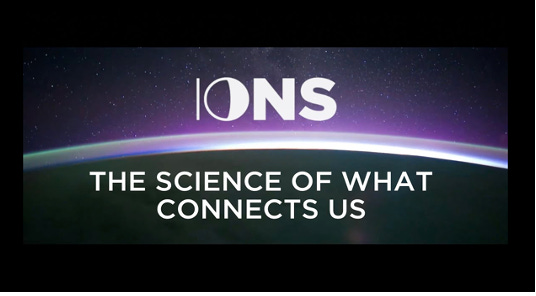the irrational rational
Science and the humanities are facing a crisis: funded research is not in sync with our era's most pressing environmental, societal, and ethical challenges. The current state of humanity requires us to consider the irrational, rationally. What irrational questions are needed to get to the heart of a meaningful relationship between frontier science and real transformative change? Prepare to rethink everything.
the future of science
The philosopher and historian of science Yehuda Elkana argued that science urgently needs to find new ways to select its research questions. His vision inspires the Elkana Forum, an interdisciplinary forum that brings together leading intellectuals to explore the scope for change at the interface between science and politics.
Scientific and humanistic disciplines are facing a crisis: their historically evolved research interests seem ill-suited to addressing our era’s most pressing environmental, societal, and ethical challenges. The current state of humanity requires us to rethink—but not unthink—some of the basic tenets of scientific knowledge.
According to the website, the Elkana Forum tackles this crisis at its root, by interrogating the very research questions that science poses. What different questions are needed to reestablish a meaningful relationship between science and real-life challenges today and in the future?
SOURCE: Elkana Forum
panpsychism
The radical idea that everything has elements of consciousness is the central premise of panpsychism, which views that all things have a mind or a mind-like quality. Coined by the Italian philosopher Francesco Patrizi in the sixteenth century, the word panpsychism derives from the two Greek words pan (all) and psyche (soul or mind).
According to panpsychism, consciousness pervades the universe—a notion that the world is awake. The idea that everything around us is animated and alive is the basis of fairy tales and children’s media, animated worlds in which trees, animals and objects befriend and rescue us. While it may seem fantastical to most of us, in the last 10 years or so, the understanding that nature has consciousness has been repeatedly demonstrated by new scientific breakthroughs. For example, we know of the creativity of cephalopods, the intelligent communication between fungi and the interspecies sharing economy in forests.
The “panpsychist” view is increasingly being taken seriously by credible philosophers, neuroscientists, and physicists, including figures such as neuroscientist Christof Koch and physicist Roger Penrose. As we progress into the 21st century, we find the beginnings of a philosophical renaissance for acknowledging the consciousness of the world and universe we live in.
SOURCE: Joe Zadeh, NOEMA
noetic sciences
Despite humanity’s ever-expanding knowledge about our physical world, there remains a gap in our understanding when it comes to consciousness.
How does consciousness arise from a physical system? Is it limited to our brain? Have you had an "aha!" experience that you know to be true, yet doesn’t have a scientific explanation for why or if it happened? Have you ever had a hunch, intuition, or gut feeling that seemed to come out of nowhere? How about an insight on a project you’ve been hard at work on that suddenly comes to you in a dream? Or you’ve thought of a dear friend or loved one, and they instantly called or texted?
While it may be easy to chalk up these occurrences to mere coincidence, according to the Institute of Noetic Sciences the greatest thinkers, scientists, philosophers, and artists report that such noetic experiences have been central to their process as well as their great works of art and scientific and cultural breakthroughs.
Today, The Institute of Noetic Sciences trains the lens of science onto noetic phenomena to gain a deeper understanding of the interconnected nature of reality. It questions and tests how we can better access a place of inner knowing. It explores the practices that can enhance our experiences of transformation, innovation, and well-being—and what science can reveal to enhance those practices. And it asks how can noetic experiences of consciousness positively transform our lives and create a better world for all?
SOURCE: Institute of Noetic Sciences
outsider ideas
Innovation, it turns out, often relies on importing new ideas from other fields. Outsider Scientists (University of Chicago Press, 2013) describes the transformative role played by “outsiders” in the growth of the modern life sciences—namely through biology. Biology is known to occupy a special place between the exact and human sciences, historically attracting many thinkers whose primary training was in other fields: mathematics, physics, chemistry, linguistics, philosophy, history, anthropology, engineering, and even literature.
These outsiders brought with them ideas and tools that were foreign to biology, but which, when applied to biological problems, helped to bring about dramatic, and often surprising, breakthroughs.
This volume demonstrates that through eighteen thought-provoking biographical essays of some of the most remarkable outsiders of the modern era: from Noam Chomsky using linguistics to answer questions about brain architecture, to Erwin Schrödinger contemplating DNA as a physicist would, to Drew Endy tinkering with Biobricks to create new forms of synthetic life. The outsiders featured make clear just how much there is to gain from disrespecting conventional boundaries.
Editors Oren Harman and Michael R. Dietrich posit that without its outsiders, modern biology would hardly be recognizable.
SOURCE: Oren Harman, Outsider Scientists
Thanks for tuning in.
For more wanderings, become an Alice in Futureland subscriber—it's free.
Invite your friends to this mad tea party and let's see how many things we can learn before breakfast.
©2023 Alice in Futureland









